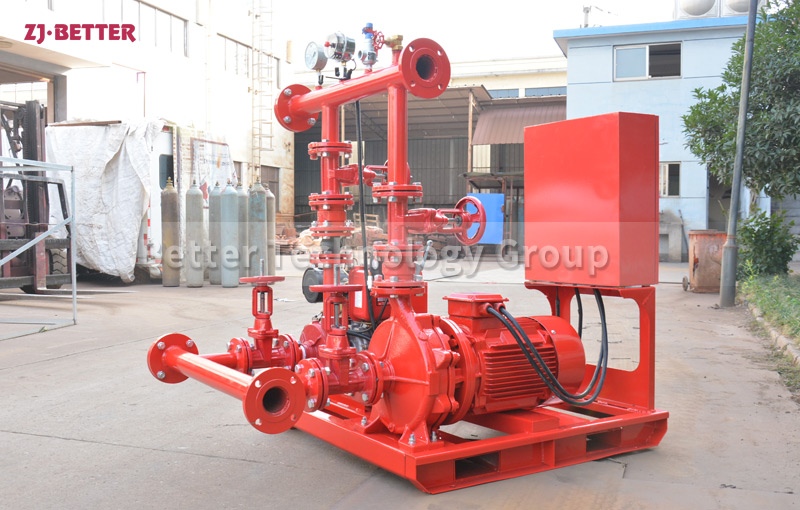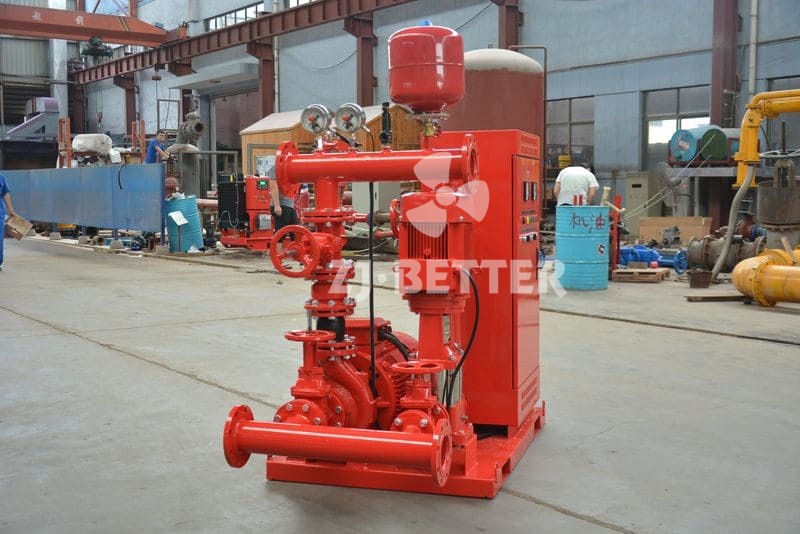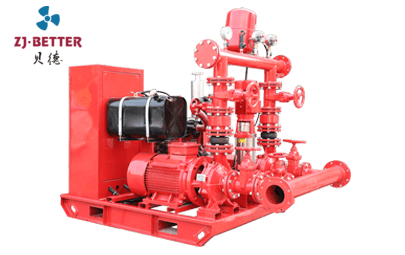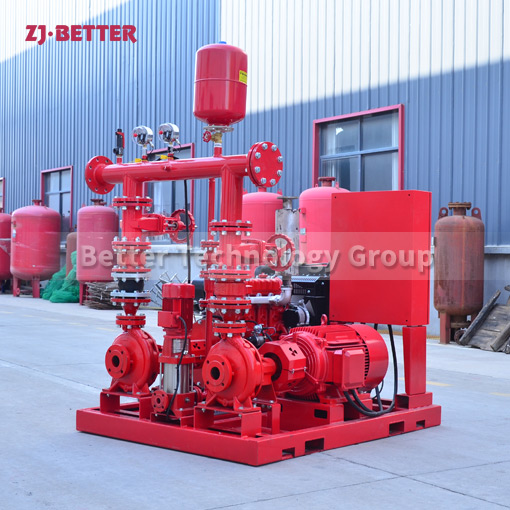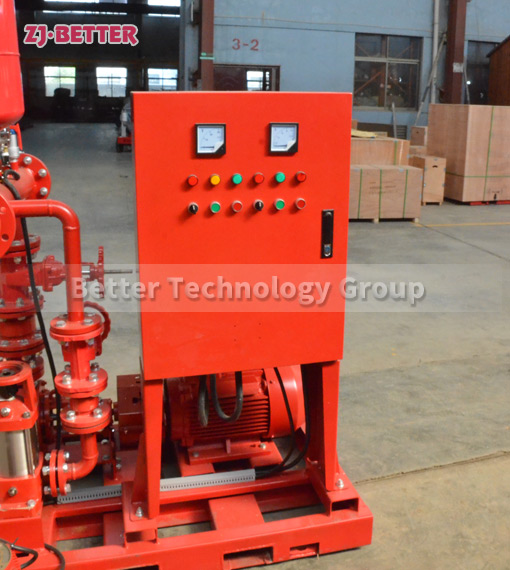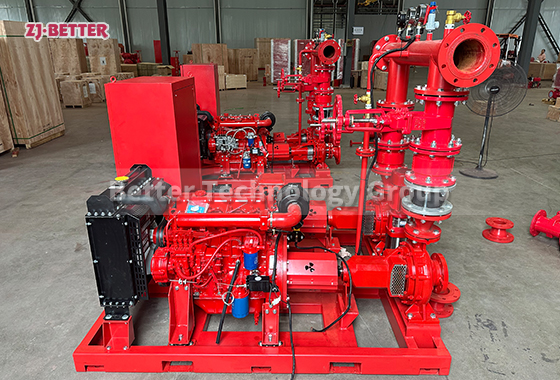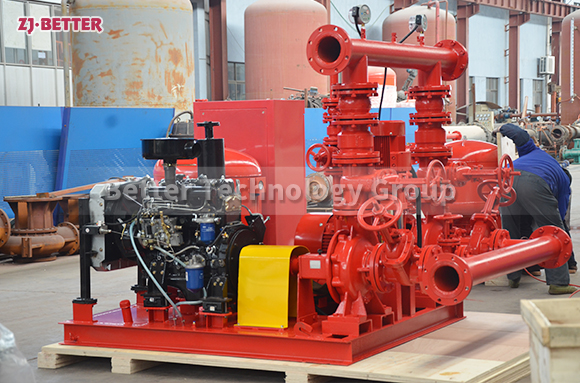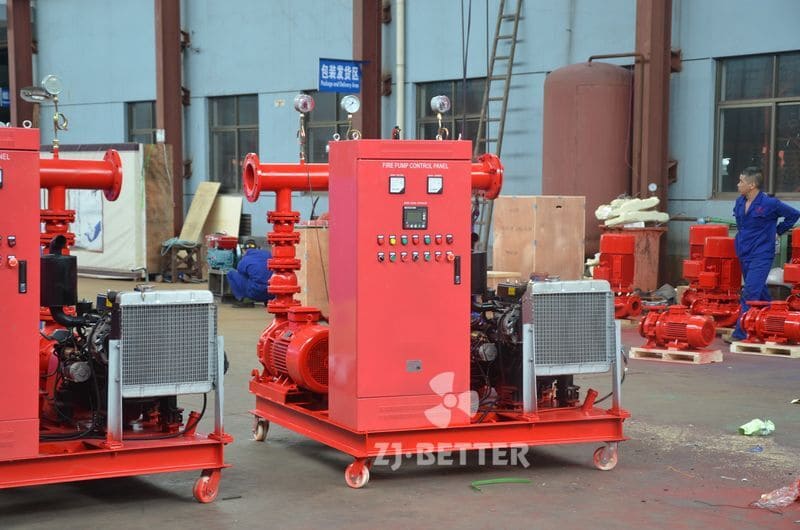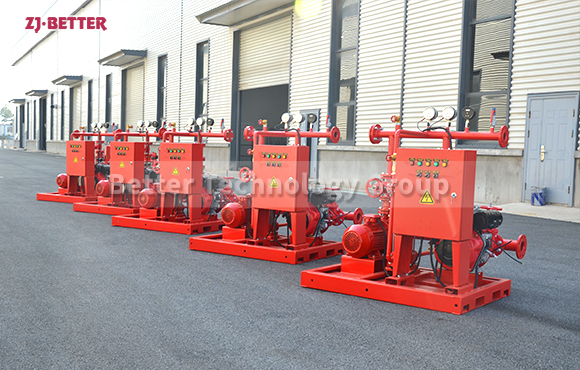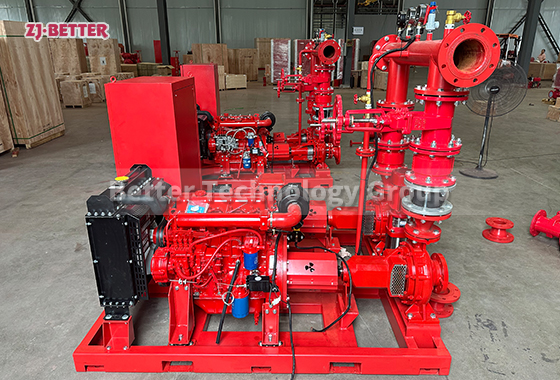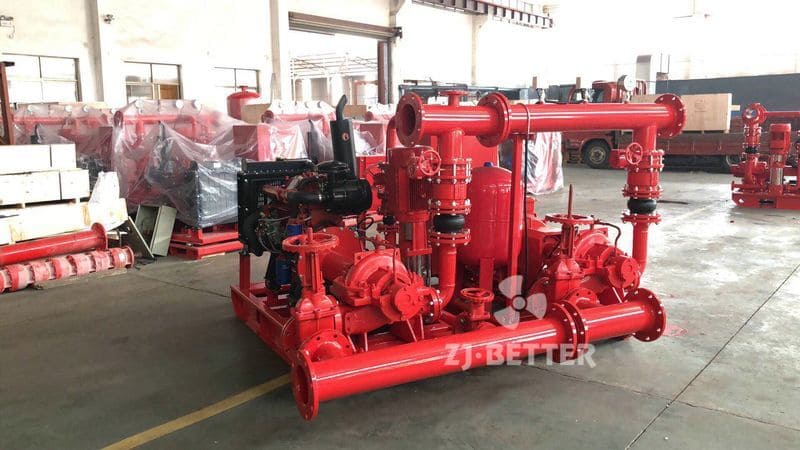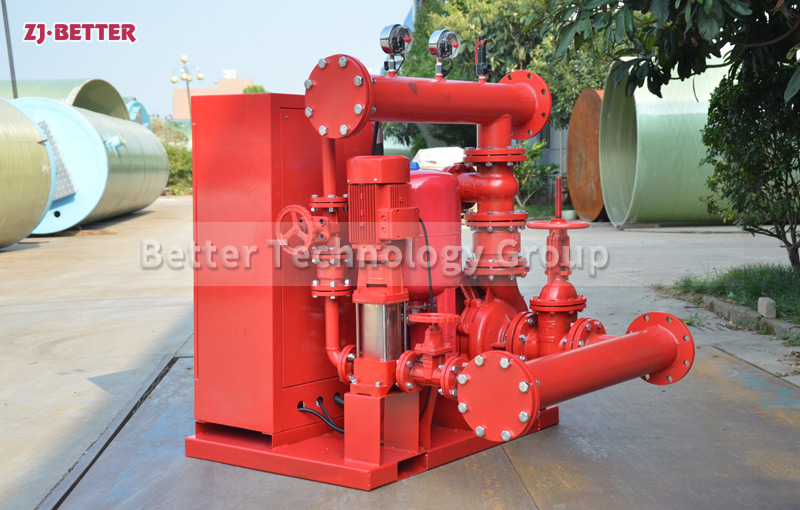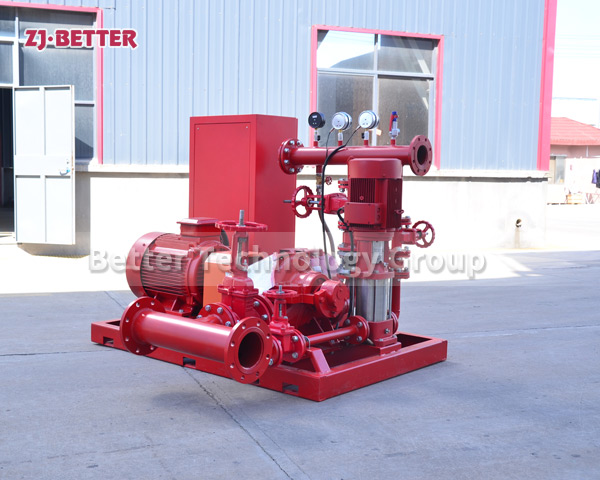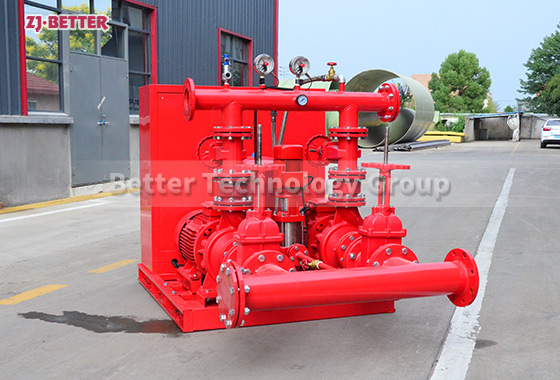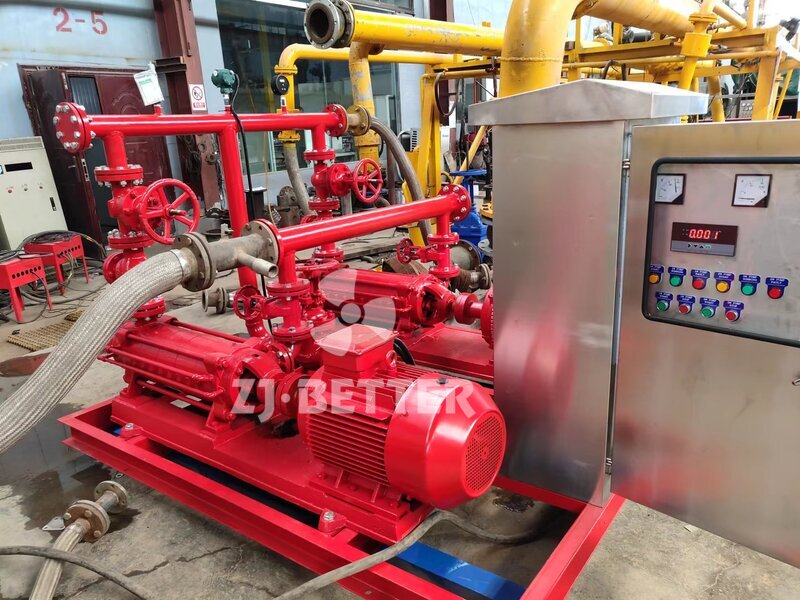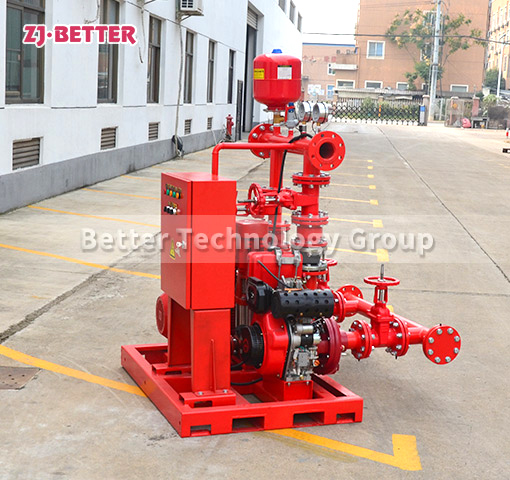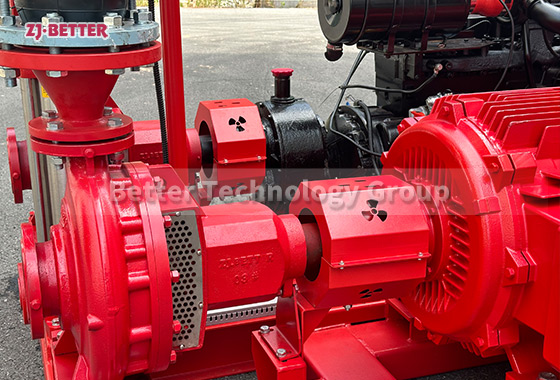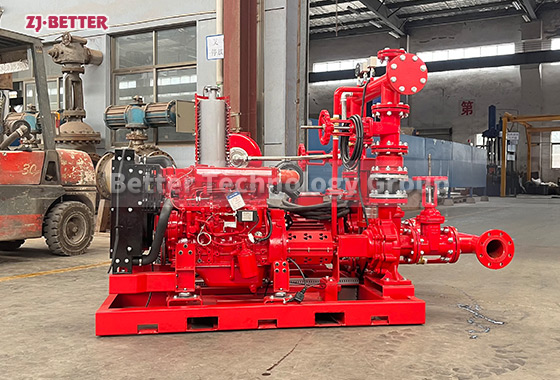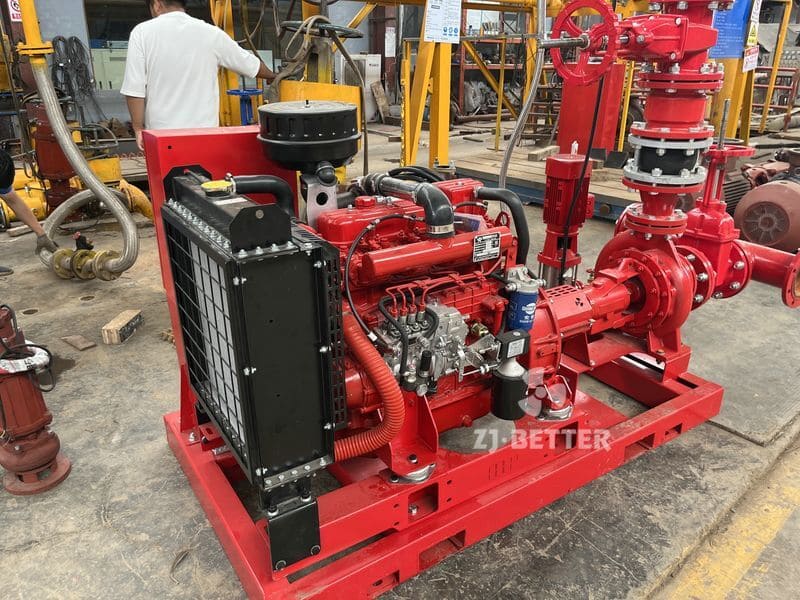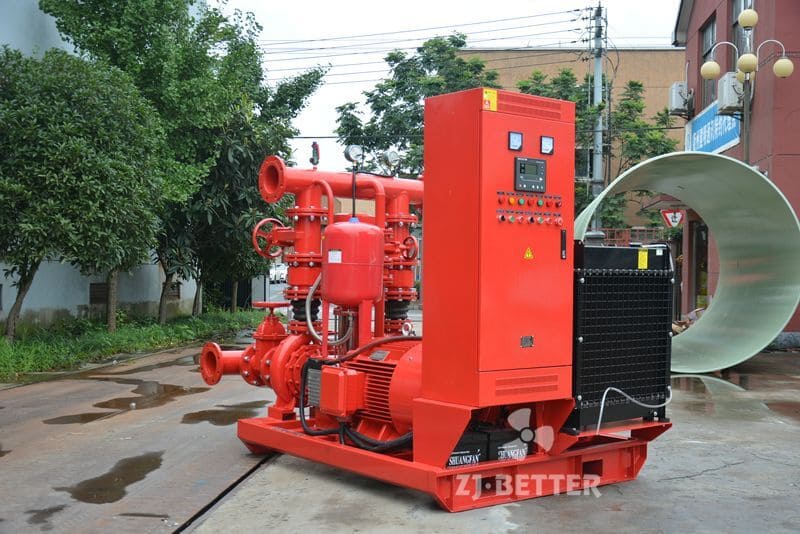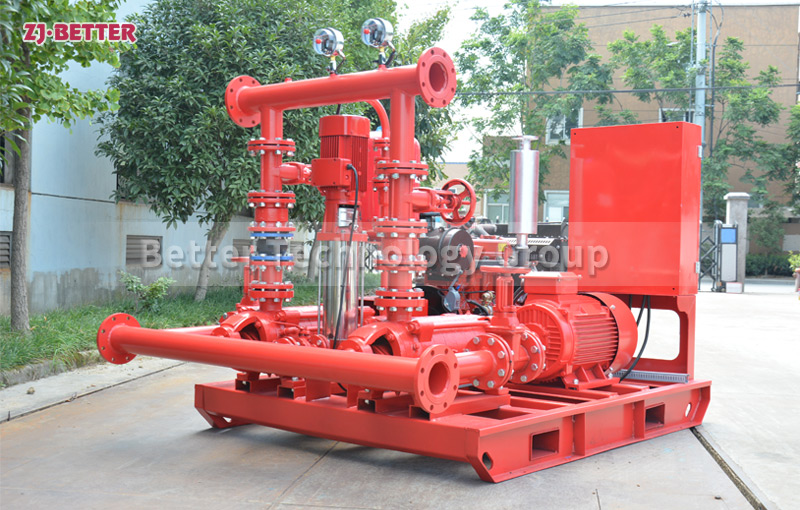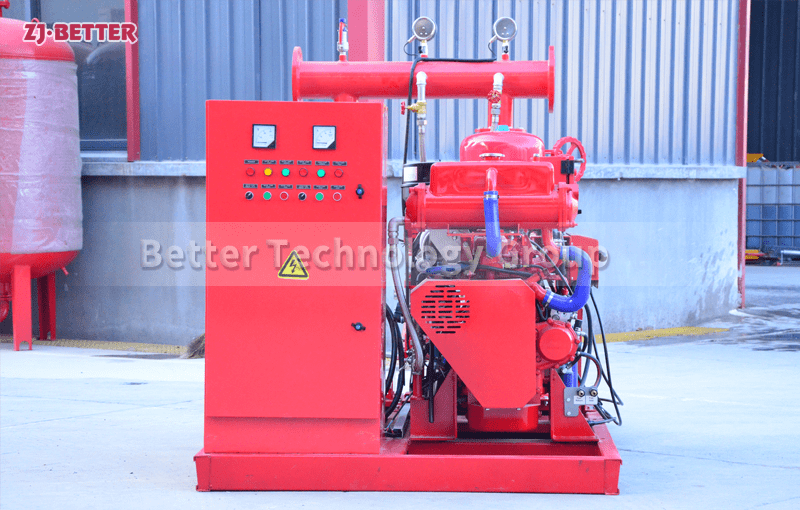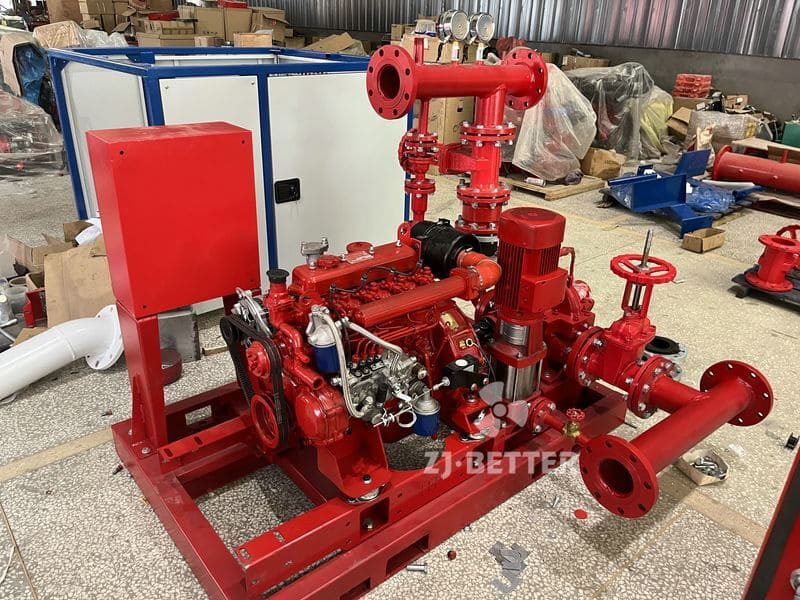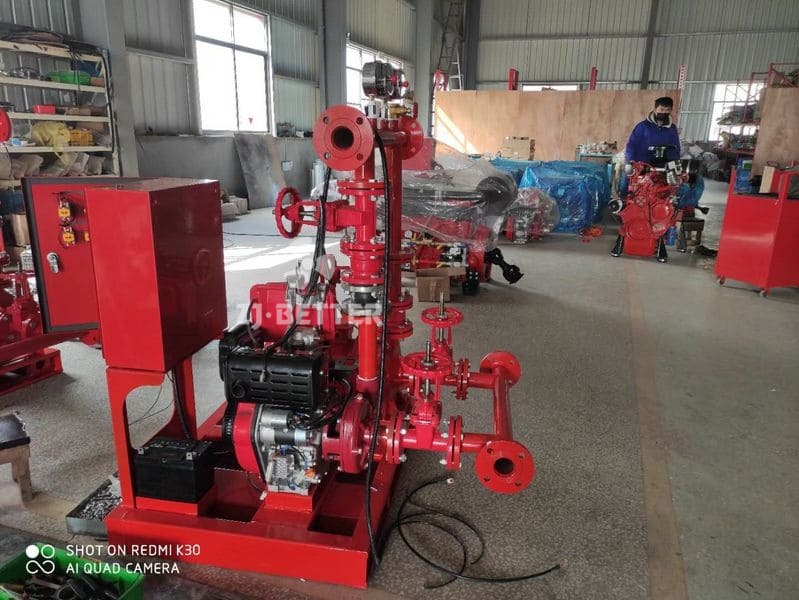What are the characteristics of diesel engine fire pump sets
The diesel engine fire pump set has the characteristics of high degree of automation, superior performance, complete protection functions, reasonable structure, simple installation, and high cost performance. When the factory suddenly fails, the diesel engine emergency water supply pump set will automatically start to supplement the pressure of the pipe network.
The main features of the diesel engine fire pump set:
Automatic start: After the diesel water pump unit receives a fire alarm/pipe network pressure/power failure/or other start signals, it can automatically start within 15 seconds and put into full-load operation.
Automatic charging: The storage battery can be automatically charged by the mains or diesel charging motor to ensure the smooth start of the unit.
Automatic alarm: automatic alarm protection for diesel engine low oil pressure, high water temperature and other faults, alarm and stop when over speed.
Automatic preheating: make the diesel engine in a hot engine standby state to ensure emergency work.
Direct connection type: The diesel water pump unit below 360kw adopts the direct connection technology between the diesel engine and the water pump through an elastic coupling, which reduces the failure points, greatly shortens the starting time of the unit, and increases the reliability and emergency performance of the unit.
Users can also request to set other alarm outputs.
It has the functions of telemetry, remote signaling and remote control.

